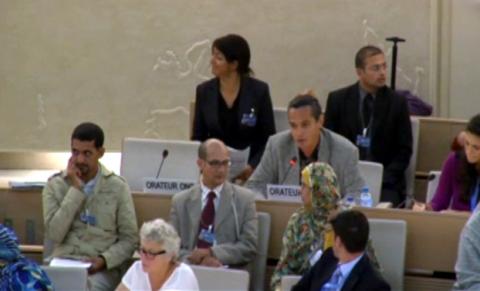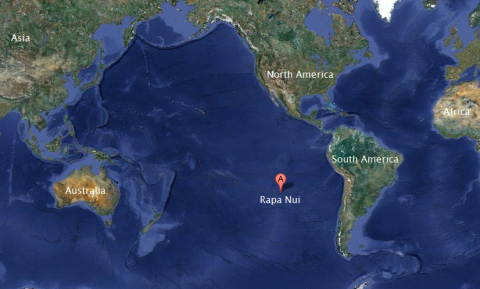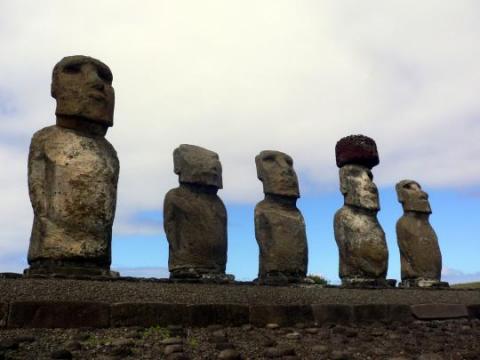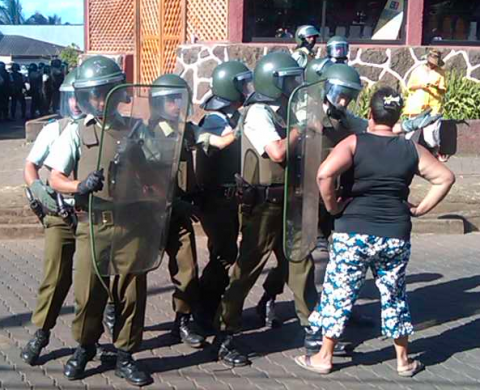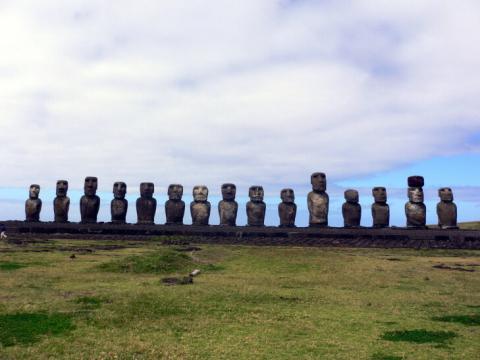Rapa Nui leader asks UN body to help protect rights
Rapa Nui leader, Santi Hitorangi, addressed the UN Human Rights Council on Sept. 18, 2015, in Geneva, seeking international support for the Rapa Nui’s right of self-determination and decolonization from Chile. “We, the Rapa Nui people, continue to fight for our right of self-determination, for protection and management of the Moai, our sacred burial sites, for regulation of immigration to our island, and the decolonization of our territory,” stated Santi Hitorangi, member of the Hitorangi Clan.
Rapa Nui Island (Easter Island)
Rapa Nui lies roughly 2,200 miles west off the coast of Chile. The small island has been inhabited since time immemorial by a Polynesian people, the Rapa Nui, who have their own distinct language and culture. Currently, the Rapa Nui are organized into 36 clans. Chile claimed control of the island in 1888, immediately confining the Rapa Nui people to one town and leasing out the rest of the island for ranching. The Rapa Nui people were confined generations and their internment ended only relatively recently – in the 1960's.
Sacred Sites
Rapa Nui culture and heritage are recognized around the world. The iconic statues – the Moai – are a part of the cultural heritage of humanity. The moai, along with other sacred ceremonial and ancestral sites of the Rapa Nui, have been incorporated into a Chilean national park. The island, marketed by Chile as an international tourist destination, attracts tens of thousands of visitors each year who come to learn about and experience Rapa Nui culture by visiting the park.
Violent History
In 2010, the Rapa Nui people protested against Chile's lack of recognition of the clans' land rights, poor management of their sacred sites, and lack of control over immigration to the island. These peaceful protests led to violent clashes with police. The Indian Law Resource Center helped the Rapa Nui petition the Inter-American Commission on Human Rights to file a formal request to the government of Chile to protect the human rights of the Rapa Nui people.
Rapa Nui Leaders Arrested
On August 15, the President and Vice President of the Parliament were arrested for collecting the entrance fee to Rapa Nui National Park. They were released the next day but were forbidden to enter their sacred sites. The President, Leviante Araki Tepano, was arrested twice more for returning to and protecting his ancestral territory.

